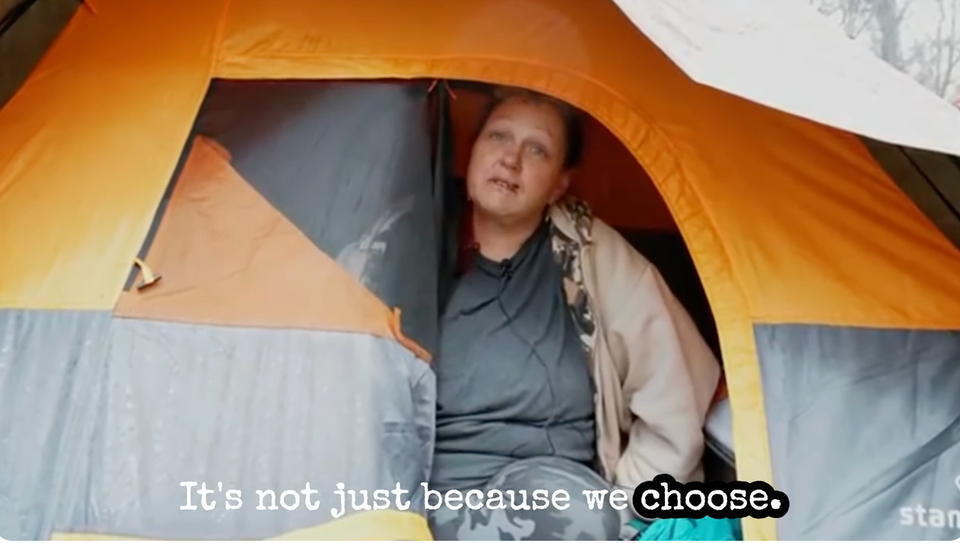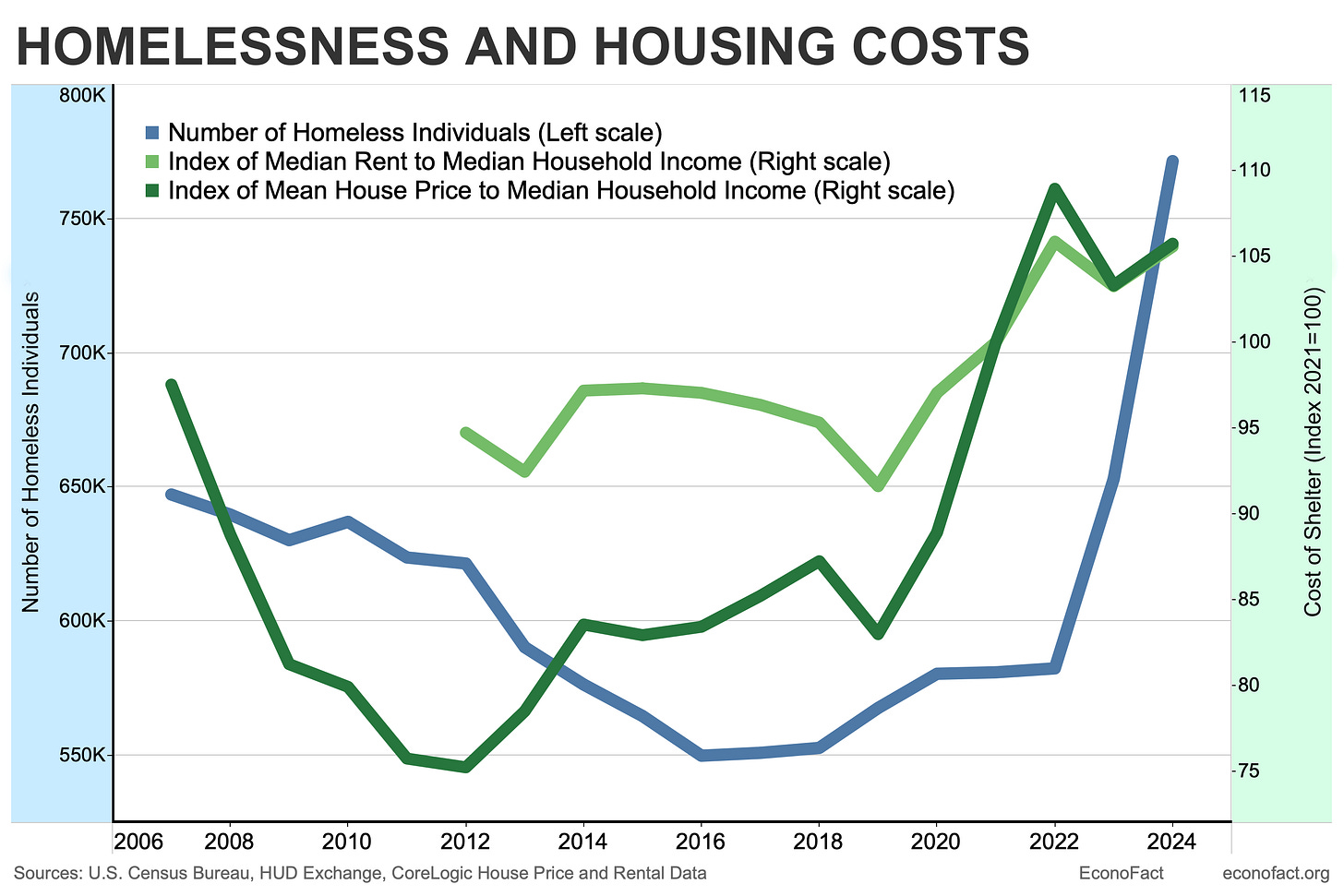We know how to solve homelessness

But Trumpism has gotten in the way—and it's about to get worse.
The homeless have always been with us. Sure.
But yes, the situation has gotten far worse, fast. The most recent accounting of America’s unhoused by the Department of Housing and Urban Development found a record number of people—including families, children, and unaccompanied children—on the streets. And the reason why this is happening now is no secret, except if you only consume right-wing media. It’s the cost and availability of housing.

This crisis—and the accompanying visibility of homelessness in a way that did not previously exist—is a “product not of poverty but of prosperity,” Brian Goldstone told Andrea Pitzer in this week’s episode of Next Comes What.
.Goldstone is an anthropologist and the author of a highly anticipated new book, There’s No Place for Us, which follows working families in Atlanta who, despite all their best efforts, cannot keep a roof over their heads.
He explains that the heartbreaking stories he documents are not meant to valorize those with one or multiple jobs who remain homeless in contrast to those who struggle with both unemployment and housing. Instead, Goldstone wants to crack the myths that define our debates on housing and poverty and show how the system that created this prosperity is also constructing the “violence” that plagues America’s working poor. We have to rethink the story we’re being told about housing radically.
“For too long we’ve treated housing as a vehicle for wealth accumulation,” Goldstone said. “We’ve treated housing as a commodity. And whoever owns the most of it can control what it costs. Another term for that is price gouging. It’s hoarding.”
Of course, the punchline to this story is that we know how to solve homelessness and how to do so in a way that’s far cheaper than the path the incoming president wants to doom us to. Goldstone points to successful models in Vienna and Finland. The Finland one is my favorite as I spent a decade working with Finns and feel I know how uncompromising and fair they are with their time and resources.
What they’re doing starts with housing and then proceeds with common sense, which may resemble compassion. The goal isn’t to punish anyone into housing with ever-increasing penalties for doing human things like using drugs and alcohol but to provide the stability needed to build a life. It’s the only sound moral and economic solution.
We can go into the political reasons these solutions are more possible in Finland, which doesn’t have America’s diversity or history of strategic racial division. But if you’re looking for the simple solution for why we can’t “solve” homelessness and won’t even really try in most places, I'll call it Trumpism. That is the belief that we need to obsessively punish the most vulnerable among us to distract from how we’re allowing a few of the richest humans ever to live to pillage us into constant distress.
As the New York Times finally admitted more than a month after the election, the economy is generally in better shape now than it has been in almost a quarter century. We should be talking about how we can use this unusual moment of growing prosperity to help those left behind by this unrelenting growth. Instead, we’re going to focus on how much to cut Elon Musk’s taxes and how many grandmas to throw off Medicaid.
And his approach to homelessness is to stop doing anything that works and put the unhoused in camps. Because the authoritarian mind always goes to camps.
Trumpism’s need to punish convenient victims will make the unhoused and migrants and trans kids the face of the “crises” they’ll say threaten us all.
But the truth is that the crisis we face has always been with us. Now we have a name and a face for it: Trumpism. As Trump knows, we have no hope of defeating the enemy until we name the enemy.
Member discussion